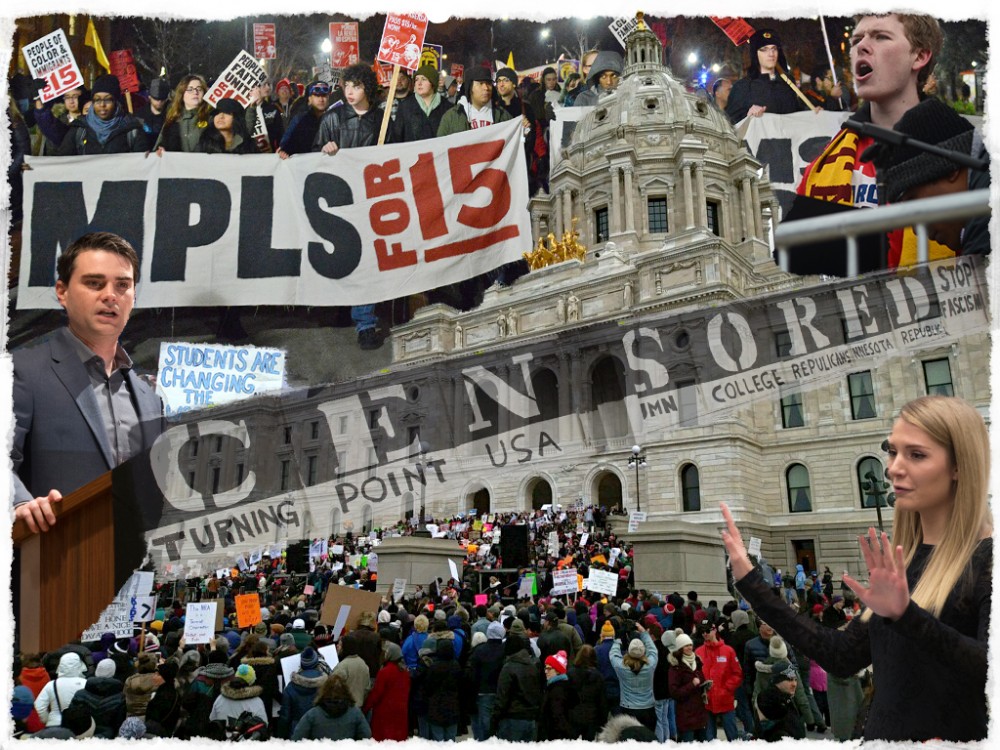The University of Minnesota’s Student Senate passed a resolution on freedom of speech and artistic expression in May, which sparked conversations around the issue.
The proposal asks the University to adopt formal guidelines on freedom of speech, taking into account the work of past committees and other universities and colleges. The Office for Student Affairs plans to continue work with student government on the issue in the fall.
“This is all about having organized conversations about freedom of speech as a campus community, not prescribing formal recommendations,” resolution author Hunter Pederson said. “[It] lays the foundation for future work and discussion.”
There’s been an uptick in universities adopting free speech guidelines around the country, with 40 universities having some form of free speech guidelines, according to the Foundation for Individual Rights in Education.
Public universities are not obligated to have their own free speech policies, as they must abide by First Amendment rights.
Pederson, a political science graduate and former member of the Student Senate, said he wanted the resolution to address the need for clarification of the University’s expectations of free expression on campus.
Matthew Berg, former secretary of the Professional Student Government, said the discussion will be a multi-year process. Further steps could include more deliberate guidelines on freedom of speech from the Board of Regents or the development of administrative codes, he said.
The resolution asks the University system-wide to improve expectations for free speech based on recurring controversies over protests and speakers visiting campus, among other reasons.
“The question is what level of protest is free speech … and what level of protest has moved from free speech to attempting to shut down somebody else’s speech,” said Joseph Konstan, chair of the Faculty Consultative Committee.
Several committees, including the FCC, have proposed further discussion to outline free speech rights, but formal policy has not been enacted due to wide-ranging perspectives on the issue.
Students for a Democratic Society member Martin Branyon said he does not want controversial speakers on campus because they promote hate speech.
SDS has staged numerous protests following politically controversial speakers on the Twin Cities campus, including conservative commentators Lauren Southern and Ben Shapiro.
“Free speech needs to be contextualized in terms of what the speech is actually pushing in its political content,” Branyon said.
Maggie Towle, the University interim vice provost for student affairs and dean of students, said there will be broad consultation with students and administrators in the fall on the issue before moving forward.
Konstan said it’s “not clear” what groups want with the resolution moving forward. “There’s this desire for a level of clarity that I’m not sure is possible. So much is case by case [when incidents occur], and I think that’s the case always,” he said.
The Bias Response and Referral Network, which handles cases of bias incidences on campus, received 76 bias incident reports on the Twin Cities campus between February 2016 and February 2017.
Incidents are sorted by, but not limited to, attacks on an individual’s religion, race, gender, sexuality, national origin and disability. “Graffiti or vandalism” was the most common form of bias incident reported, followed by “online incidents” and “in person.”
Minnesota Hillel, a Jewish student center on the Twin Cities campus, has seen anti-Semitic imagery on campus and worked with the BRRN to report these incidences.
Benjie Kaplan, executive director of Minnesota Hillel, said the Jewish community feels most attacked when individual students are targeted.
“While different groups on campus have their own world views and missions, I am hopeful that during these difficult times, when issues seem to be more polarized than ever before, student groups and the University will continue to seek spaces for dialogue and understanding,” Kaplan said.







